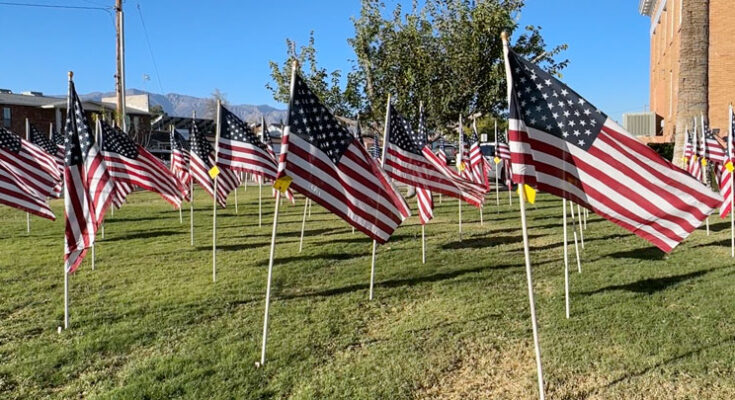Evictions disrupt lives in an instant, but for military families, the stakes are even higher. Serving on active duty often means sudden deployments, unexpected relocations, and limited time to handle legal matters back home. When those pressures collide with housing disputes, families can be left exposed to unfair treatment.
The Servicemembers Civil Relief Act was designed to prevent this very problem, yet its strength depends on proper military verification. Without it, households risk being pulled into wrongful eviction cases that never should have happened in the first place.
What happens when the law is followed correctly, and how does it shield servicemembers from losing their homes while they serve the nation? That’s where the real story begins.
Key Eviction Safeguards Under the SCRA
The SCRA was established to protect those on active duty from housing loss during service obligations. Under this law, families cannot be removed from their rental homes without a court order.
Judges may also grant a delay of up to 90 days if military duties interfere with a servicemember’s ability to appear in court. This safeguard ensures that spouses, children, or other dependents who rely on the servicemember for support are not suddenly left without housing.
Protection also extends to lease agreements. When military orders require relocation or deployment, servicemembers have the right to end a lease early without penalty. These measures under the Servicemembers Civil Relief Act help prevent wrongful evictions and give families the stability they need while a loved one serves the country.
Why Verification Is the First Line of Defense
Every eviction case involving a military family begins with one critical step: confirming the tenant’s duty status. Military verification ensures that courts and landlords confirm if a servicemember is on active duty before any action is taken. Without this safeguard, families can be exposed to wrongful eviction proceedings they should never face.
Courts strengthen this protection by requiring affidavits that document a tenant’s military status. This step prevents unlawful cases from slipping through and reinforces housing security for families while a servicemember is deployed or training.
Verification also benefits landlords and attorneys. Proper documentation reduces the risk of costly legal challenges and demonstrates compliance with federal housing laws. In many ways, verification acts as the first barrier against mistakes, giving families the confidence that their rights will be upheld and assuring landlords that their actions remain legally sound.
How Verification Prevents Wrongful Evictions in Practice
The moment an eviction case is filed, the question of a tenant’s military status becomes central. Courts require landlords to provide proof through affidavits or official records before the process can move forward. This simple step stops many wrongful actions at the very beginning.
Verification ensures that families protected under SCRA eviction laws are not pulled into proceedings that should never reach the courtroom. With accurate records in hand, judges can determine if a delay is appropriate when military service limits a tenant’s ability to appear.
For servicemembers away on deployment, this safeguard is critical. Their absence from home should not translate into housing loss for their families. Verification makes sure that those carrying out military duties are not unfairly penalized for circumstances beyond their control, keeping families secure while the law runs its course.
Challenges Military Families Face During Evictions
Losing a home is never easy, but for military families, the consequences often cut deeper than financial strain. A sudden eviction can uproot children from their schools, disrupt routines already stretched by deployment, and place enormous pressure on spouses managing the household alone.
Unpredictable duty schedules and frequent relocations often leave families relying on a single income, making it harder to recover from sudden expenses. When combined with the emotional toll of separation or the challenges of post-traumatic stress after combat, the added threat of eviction can feel overwhelming.
For families stationed far from relatives or support networks, navigating the legal side of housing disputes becomes even more difficult. This is why military verification is so critical, giving courts the clarity needed to protect households from wrongful evictions and helping families maintain stability during already uncertain times.
Recent Trends Highlighting the Need for Compliance
Housing disputes have grown more frequent in the past few years, with eviction filings in many states now exceeding pre-pandemic levels. This rise has not been evenly felt. Studies reveal that women make up more than half of those facing eviction, with Black and Hispanic women disproportionately represented in these numbers. The uneven impact underscores how vulnerable families are when legal protections are overlooked.
As eviction activity increases, the risk of mistakes involving military tenants grows as well. Courts have already documented cases where landlords filed actions without properly verifying a tenant’s duty status, forcing reversals and creating unnecessary hardship.
These errors highlight why strict compliance with verification rules is essential. In an environment where eviction filings continue to rise, accurate military verification is the safeguard that prevents service families from becoming part of these troubling statistics.
Consequences of Neglecting Verification
Verification is more than a formality in eviction cases. Ignoring it can trigger legal setbacks, financial penalties, and lasting damage to reputation. Courts often reverse wrongful evictions once a tenant’s duty status is proven, but the stress on families and the expense for landlords cannot be undone.
The risks are not theoretical. In February 2025, two landlords in Virginia were held accountable after removing a servicemember without the court order required under the Servicemembers Civil Relief Act. The settlement required them to pay $225,000 in penalties, underscoring the price of noncompliance.
Cases like this also harm public trust. News of unlawful evictions can damage the standing of property owners and even raise questions about local housing practices. With the Department of Justice actively enforcing SCRA protections, skipping verification is a mistake that carries consequences far beyond the courtroom.
Practical Steps Landlords Should Take
Preventing wrongful eviction starts with consistent habits built into the process. Landlords who make verification routine avoid costly mistakes and protect military families from unnecessary hardship.
The first step is requesting and documenting a tenant’s duty status before any filing begins. Courts require affidavits to confirm active service, and using reliable databases ensures the information stands up in legal proceedings. Incorporating verification into standard case preparation keeps every action compliant and defensible.
Education is equally important. Property owners who understand the protections in the Servicemembers Civil Relief Act are less likely to make errors. Sharing that knowledge with tenants can also reduce disputes before they reach the courtroom. When both sides are informed, cases run smoothly and families remain secure in their homes.
Conclusion
Military verification stands as the first shield against wrongful evictions, ensuring that families are not uprooted while a loved one serves the country. These protections are not abstract rules but practical safeguards that keep households stable during deployments, relocations, and the uncertainty of active duty life.
Courts and landlords who take verification seriously do more than follow procedure. They uphold trust, prevent costly disputes, and protect the dignity of those in uniform. In a time when eviction filings are rising, reinforcing these safeguards is not just about compliance. It is a commitment to fairness and responsibility.











